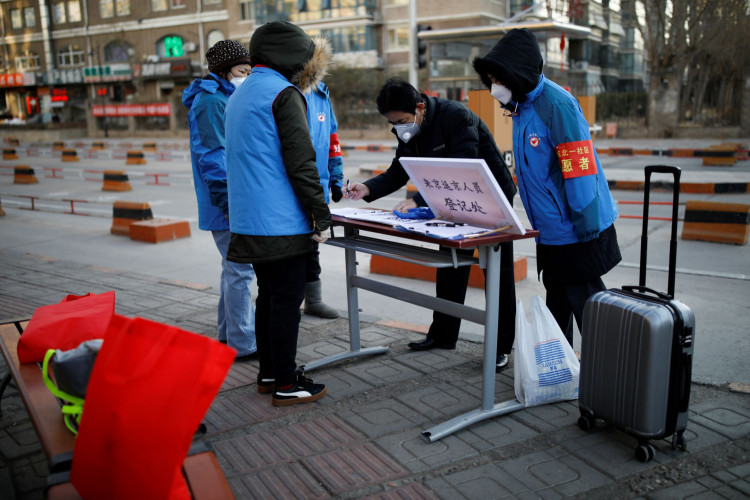A study published Friday in the medical journal The Lancet estimated that there could be 75,815 people infected with novel coronavirus but that they are mostly unaccounted for. The study, authored by Hong Kong researcher Gabriel Leung, suspects that not all infected people are willing to come forward and seek medical attention.
Leung is chairman of public health medicine at the University of Hong Kong. In the study, his team explained that there remains to be a blurred timeline from the time the outbreak struck, up until the time authorities implemented strict lockdown in Wuhan. In the grey area is how big the epidemic is and its pandemic since there are medical experts saying that coronavirus victims could be asymptomatic. That finding suggests that there are infected people who have yet to come forward to medical authorities and have spread the virus without them being aware.
Indeed, the latest inside China is that there could be 102,427 people who had close contact with infected individuals. Deaths have risen to 259 as of February 1. Hubei reported 45 new fatalities. Chongquing reported one. In total, that would be 46 confirmed deaths for the Asian country.
At the same time, Hubie reported 1,347 new cases. That's on top of the 2,102 new cases reported on January 31. All in all, China's National Health Commission placed the national total cases at 11,791.
The Chinese government extended the country's holiday in January. This week, more Chinese provinces are delaying the start of work and school to prevent more contamination.
In Beijing, companies were required to have their employees work from home until February 10. In Tianjin, officials announced that work and school are canceled until further notice. Hubei is canceling work and school until February 13.
Hunan, to resume work and school by February 9. The same goes for Shanghai, Chongquing, Anhui, Fujian, Guangdong, Jiangsu, Jiangxi, Yunnan, Suzhou, Inner Mongolia and Zhejiang.
Even with the growing anti-China sentiments pathogens praised the Asian country for its effort to slow the spread of the outbreak. Pathogens specialist Dr Syra Madad said China is doing a great job responding to the outbreak.
Madad is a professor and expert in public health and special pathogen preparedness and response. The expert said the proof of China's effective effort to curb the spread of the deadly virus is that the majority of the severe cases of the outbreak are in the mainland.
China is also doing good with guaranteeing an adequate supply of food as borders are closing and all forms of transportation are either halted or reduced. The move comes as panic buying became widespread in different provinces.
The Ministry of Commerce said local authorities can guarantee supplies of important commodities. In Wuhan in Hubei province, residents have access to enough rice and cooking oil for at least 15 days more until alternate resources are identified. Nanjing also has more than 20,000 tons of vegetables. Vegetable farms in Shouguang in Shandong pledged to provide 350 tons of fresh vegetables to Wuhan for at least one month.





